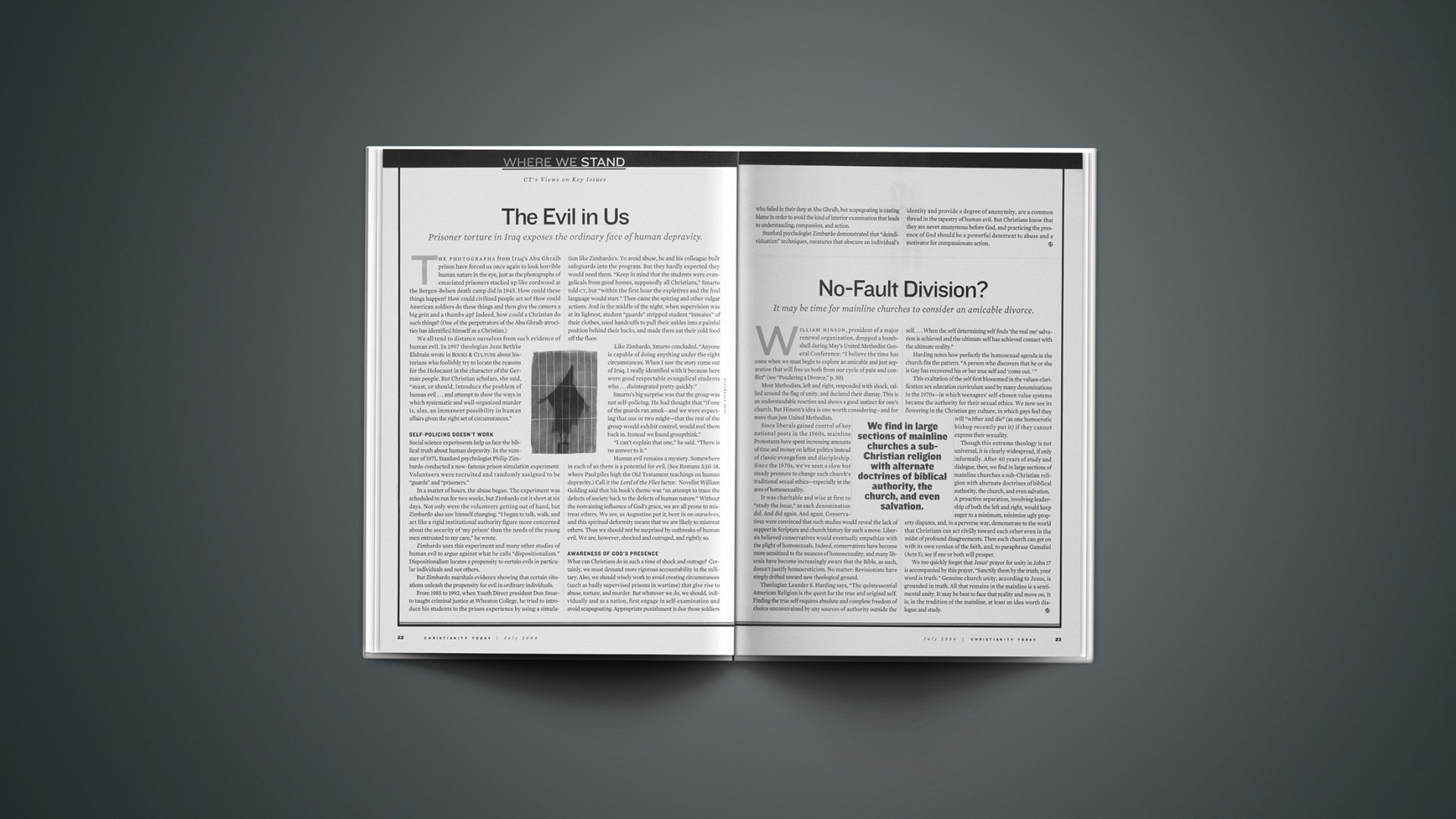William Hinson, president of a major renewal organization, dropped a bombshell during May’s United Methodist General Conference: “I believe the time has come when we must begin to explore an amicable and just separation that will free us both from our cycle of pain and conflict”.
We find in large sections of mainline churches a sub-Christian religion with alternate doctrines of biblical authority, the church, and even salvation.
Most Methodists, left and right, responded with shock, rallied around the flag of unity, and declared their dismay. This is an understandable reaction and shows a good instinct for one’s church. But Hinson’s idea is one worth considering—and for more than just United Methodists.
Since liberals gained control of key national posts in the 1960s, mainline Protestants have spent increasing amounts of time and money on leftist politics instead of classic evangelism and discipleship. Since the 1970s, we’ve seen a slow but steady pressure to change each church’s traditional sexual ethics—especially in the area of homosexuality.
It was charitable and wise at first to “study the issue,” as each denomination did. And did again. And again. Conservatives were convinced that such studies would reveal the lack of support in Scripture and church history for such a move. Liberals believed conservatives would eventually empathize with the plight of homosexuals. Indeed, conservatives have become more sensitized to the nuances of homosexuality, and many liberals have become increasingly aware that the Bible, as such, doesn’t justify homoeroticism. No matter: Revisionists have simply drifted toward new theological ground.
Theologian Leander S. Harding says, “The quintessential American Religion is the quest for the true and original self. Finding the true self requires absolute and complete freedom of choice unconstrained by any sources of authority outside the self. … When the self determining self finds ‘the real me’ salvation is achieved and the ultimate self has achieved contact with the ultimate reality.”
Harding notes how perfectly the homosexual agenda in the church fits the pattern. “A person who discovers that he or she is Gay has recovered his or her true self and ‘come out. ‘ “
This exaltation of the self first blossomed in the values-clarification sex education curriculum used by many denominations in the 1970s—in which teenagers’ self-chosen value systems became the authority for their sexual ethics. We now see its flowering in the Christian gay culture, in which gays feel they will “wither and die” (as one homoerotic bishop recently put it) if they cannot express their sexuality.
Though this extreme theology is not universal, it is clearly widespread, if only informally. After 40 years of study and dialogue, then, we find in large sections of mainline churches a sub-Christian religion with alternate doctrines of biblical authority, the church, and even salvation.
A proactive separation, involving leadership of both the left and right, would keep anger to a minimum, minimize ugly property disputes, and, in a perverse way, demonstrate to the world that Christians can act civilly toward each other even in the midst of profound disagreements. Then each church can get on with its own version of the faith, and, to paraphrase Gamaliel (Acts 5), see if one or both will prosper.
We too quickly forget that Jesus’ prayer for unity in John 17 is accompanied by this prayer, “Sanctify them by the truth; your word is truth.” Genuine church unity, according to Jesus, is grounded in truth. All that remains in the mainline is a sentimental unity. It may be best to face that reality and move on. It is, in the tradition of the mainline, at least an idea worth dialogue and study.
Copyright © 2004 Christianity Today. Click for reprint information.
Related Elsewhere:
Also posted today is Pondering a Divorce a report on the United Methodist General Conference and Methodists Divided on Split reactions from Church leaders.
Other Christianity Today articles about mainline churches and evangelicalism includes:
Turning the Mainline Around | New sociological studies show that evangelicals may well succeed at renewing wayward Protestantism. (July 25, 2003)
‘Confessing’ Christians Stick It Out | Some conservatives, however, give up on reforming their denominations. (November 27, 2001)
Will Presbyterians Embrace ‘Confessing Movement’? | Conservatives threaten to withhold money if national leadership doesn’t agree with affirmations. (May 9, 2001)
Mainstreaming the Mainline | Methodist evangelicals pull a once ‘incurably liberal’ denomination back toward the orthodox center. (August 18, 2000)
For articles on related denominational disputes, see Christianity Today‘s church life, and sexuality and gender archives.










